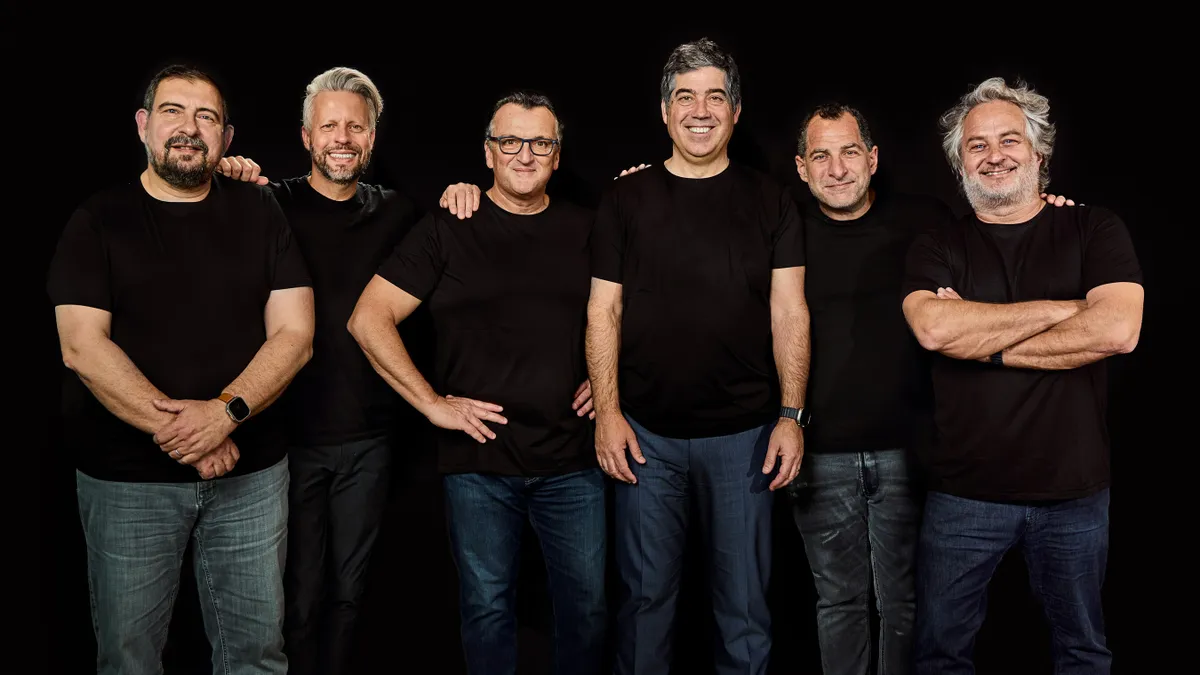Creative agency Gut has been a breakout success, attracting big brand clients and winning multiple Cannes Lions awards, including an Agency of the Year recognition in 2023. That strong track record is one reason why it came as a surprise to some industry watchers when technology consultancy Globant recently took a majority stake in the shop, raising questions about the viability of creatively driven independent agencies in today’s marketplace.
The deal reflects the growing interconnection between creativity and technology, a trend that is likely to be further amplified in the months ahead by the rise of artificial intelligence (AI). Globant earlier this year revealed that it is investing $1 billion in Latin America, a plan that includes the creation of an AI hub. Gut is expected to aid in Globant’s efforts to build out a broader AI-enhanced agency network.
“Technology and creativity have never been more closely linked than they are today,” said Martin Migoya, co-founder and CEO of Globant, in a statement around the deal. “With this acquisition, we will be able to offer a unique blend of top-notch technology and bold ideas to brands from the very beginning of the creative ideation process.”
Founded just five years ago, Gut has quickly become an industry darling. The agency employs more than 500 people, with offices in South America, North America and Europe. Its client roster includes blue-chip brands such as AB InBev, Mercado Libre, Google, Kraft Heinz and Coca-Cola. For Globant, the acquisition adds additional appeal to its growing digital marketing and sales practice. Over the past few years, the company has snapped up shops including Spanish agency Habitant, Danish agency Vertic, Ad_Bid and KTBO.
“[The Gut deal] shows the importance of digital transformation as the center of marketing communications,” said Greg Paull, co-founder and principal at agency consulting firm R3. “An agency can’t survive purely on great creative alone, nor can they survive on pure digital efficiency alone. It’s really bringing those two parties together that’s going to make a difference.”
Potential payoff
In some ways, Globant’s move for Gut is a familiar story. Accenture in 2019 acquired creative darling Droga5, the crown jewel in the company’s extensive run of agency M&A, while rival Deloitte Digital has also rapidly expanded its marketing services. However, these management consultants have not necessarily taken the industry by storm in the expected ways, indicating that acquisitions alone do not unlock immediate wins or the intended synergies between tech and creativity.
“We’ve seen this movie before with Accenture and Deloitte acquiring creative agencies,” said Jay Pattisall, vice president and principal analyst at Forrester Research. “These types of acquisitions have not been as successful as when agencies or holding companies acquire the technology companies.”
A shrinking field for smaller and mid-sized agencies has been apparent this year in ways that extend beyond the encroachment of consultancies. Majority and L&C have sold minority stakes to holding companies, while Stagwell has been on a buying spree of late, acquiring creatively driven agencies including Left Field Labs, Tinsel and Movers + Shakers.
“It doesn’t bode well for small- to medium-sized agencies,” Pattisall said of the broader industry trends underpinning this type of dealmaking. “It used to be that when we looked at the issue of the scale of holding company agencies versus the culture of small independents, there was a debate as to which one was more beneficial because they both come with pros and cons.”
Steep demands
One problem independents face is that digital technology continues to become a bigger and increasingly crucial part of the marketing toolbox. Yet, these are areas that require a refined level of expertise and hefty time and financial resources to get right. That could be one reason why companies like Gut are looking to larger partners.
Digital tools also bring with them a degree of accountability and measurement demands that indies can struggle to meet. Clients can and do seek more efficiency in their campaigns, even as those campaigns have greater reach and scale. Ultimately, that means many creatively driven agencies will have to forge some type of alliance with technology companies, according to R3’s Paull.
“It’s a challenge,” Paull said. “But I think ultimately the marketplace has said, ‘Look creativity is great, but we have to have a [measureable] aspect as well.’”














